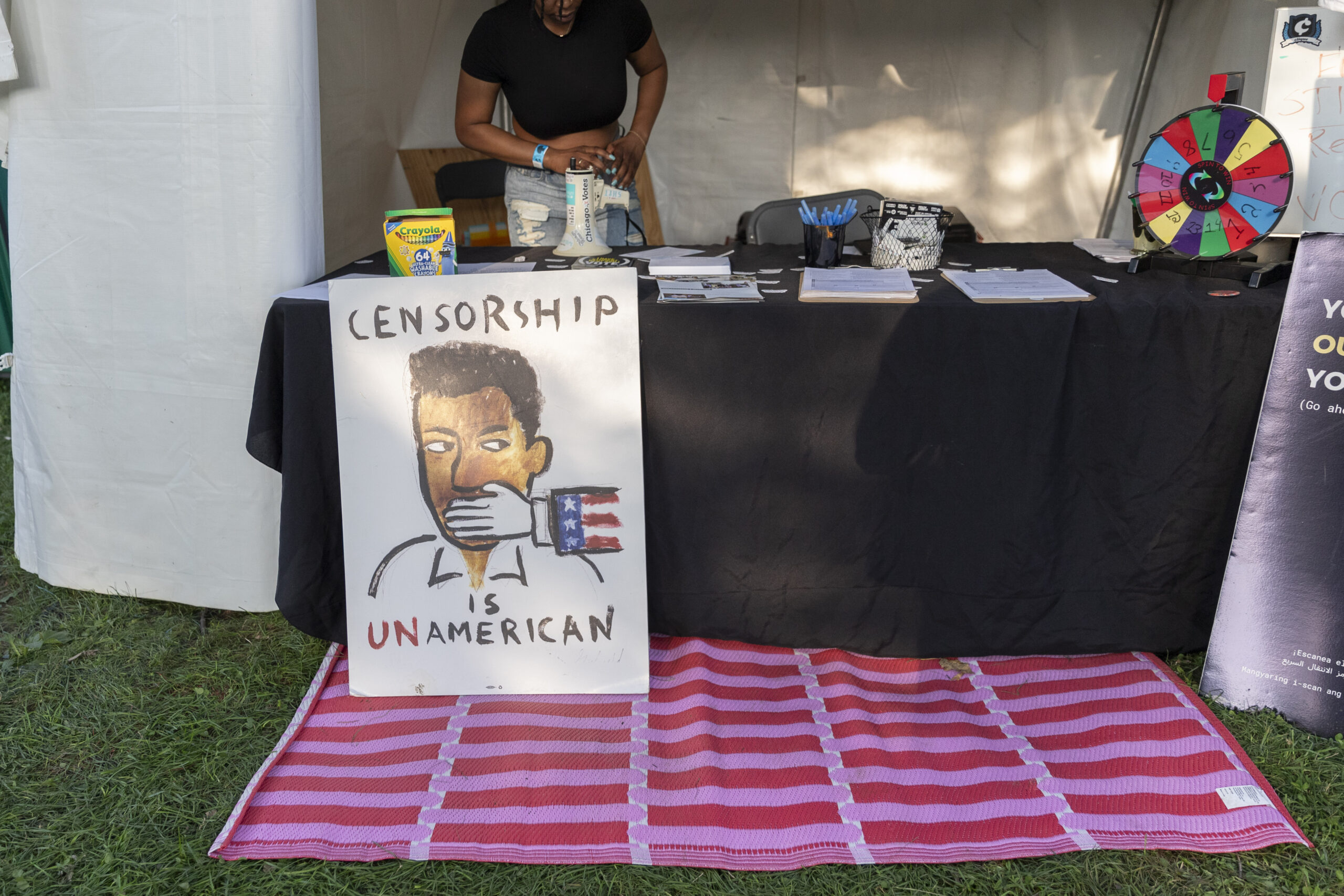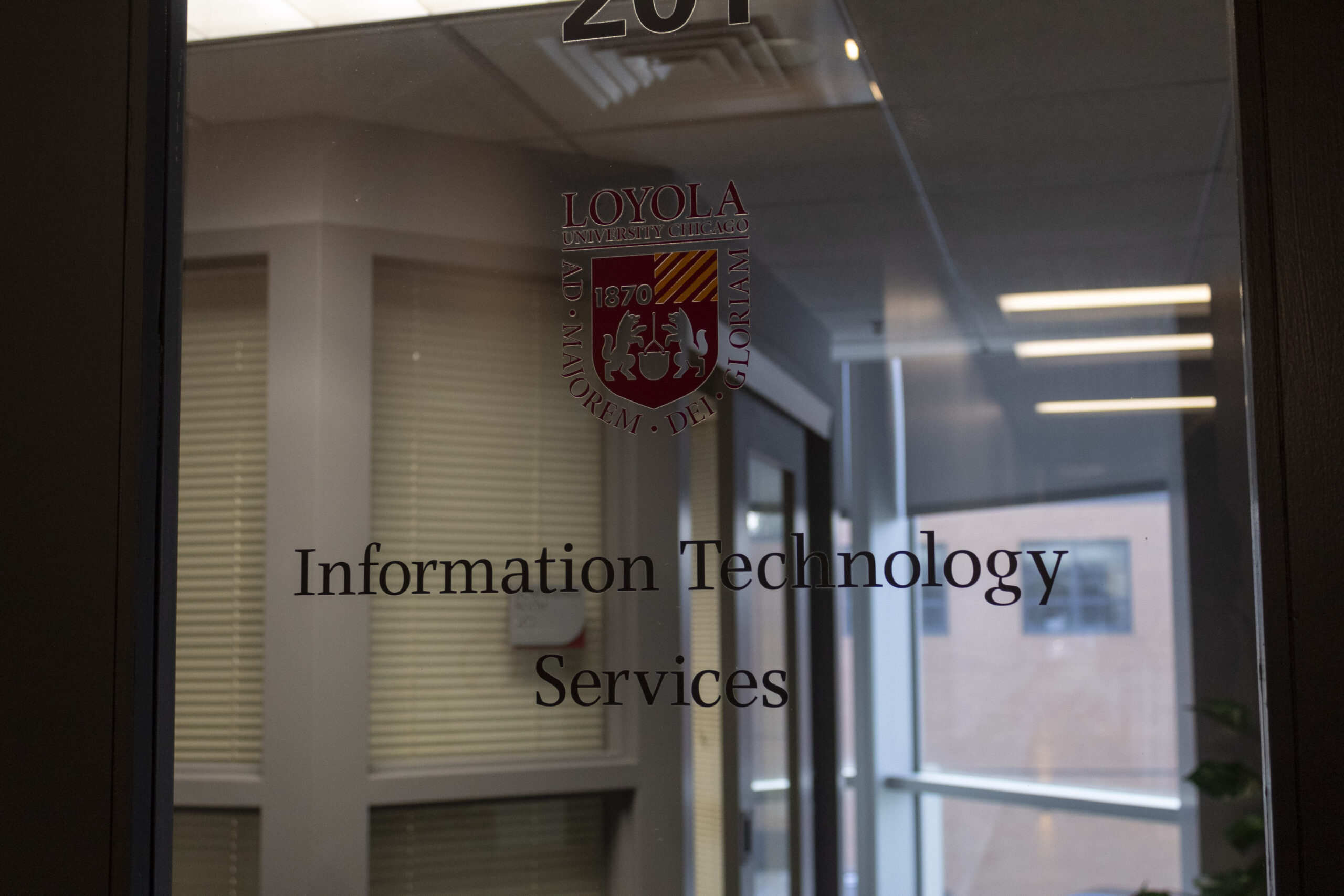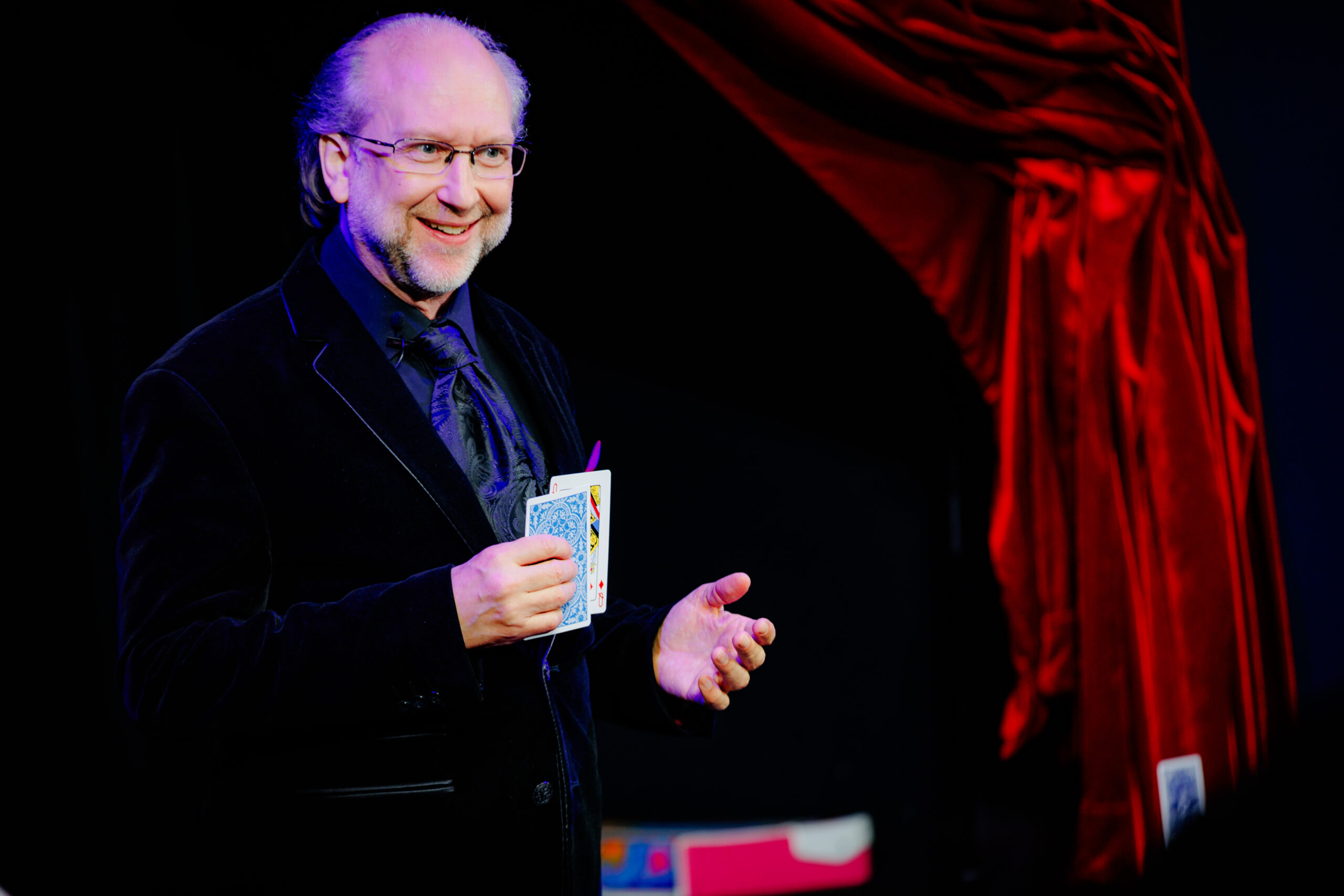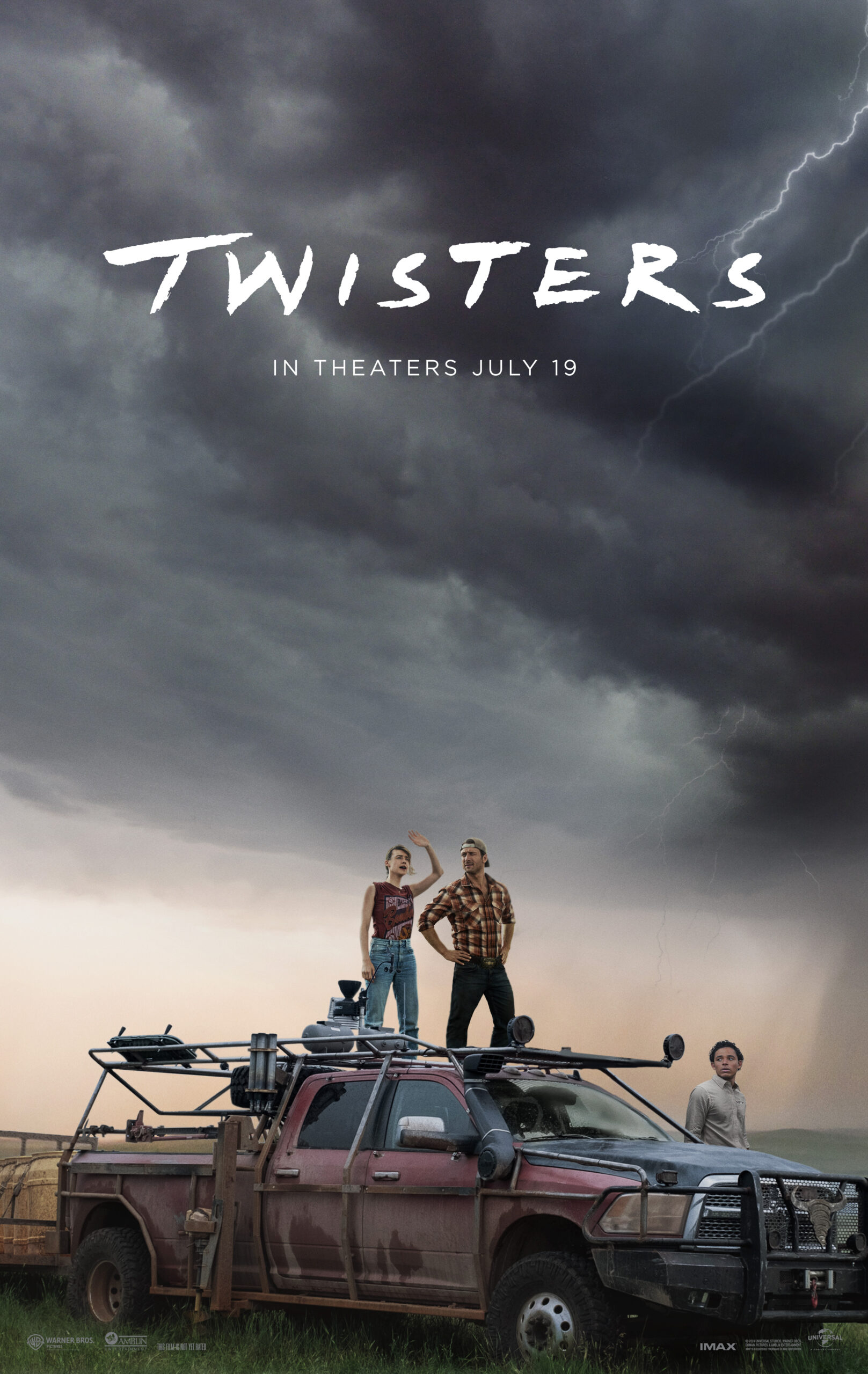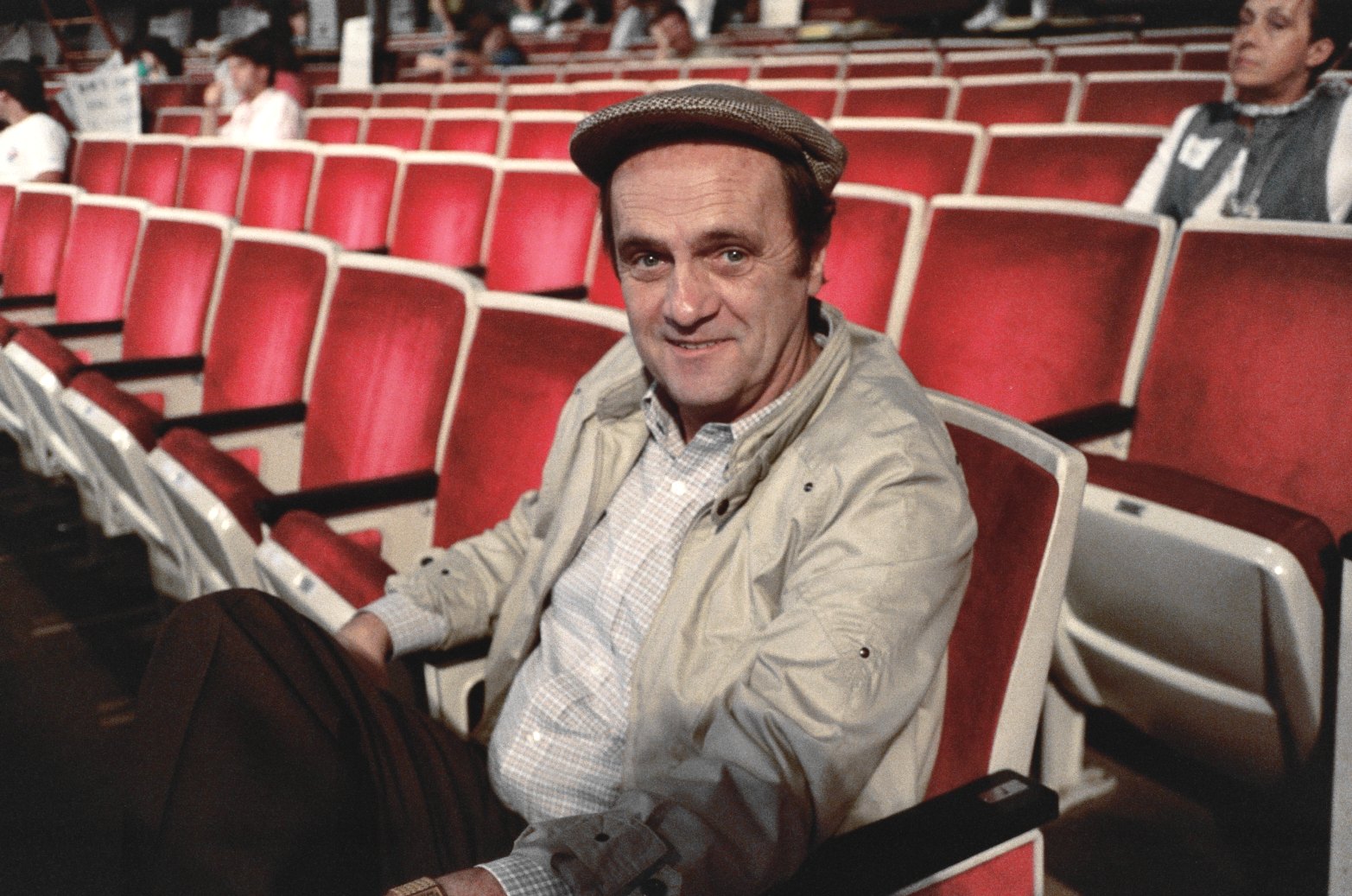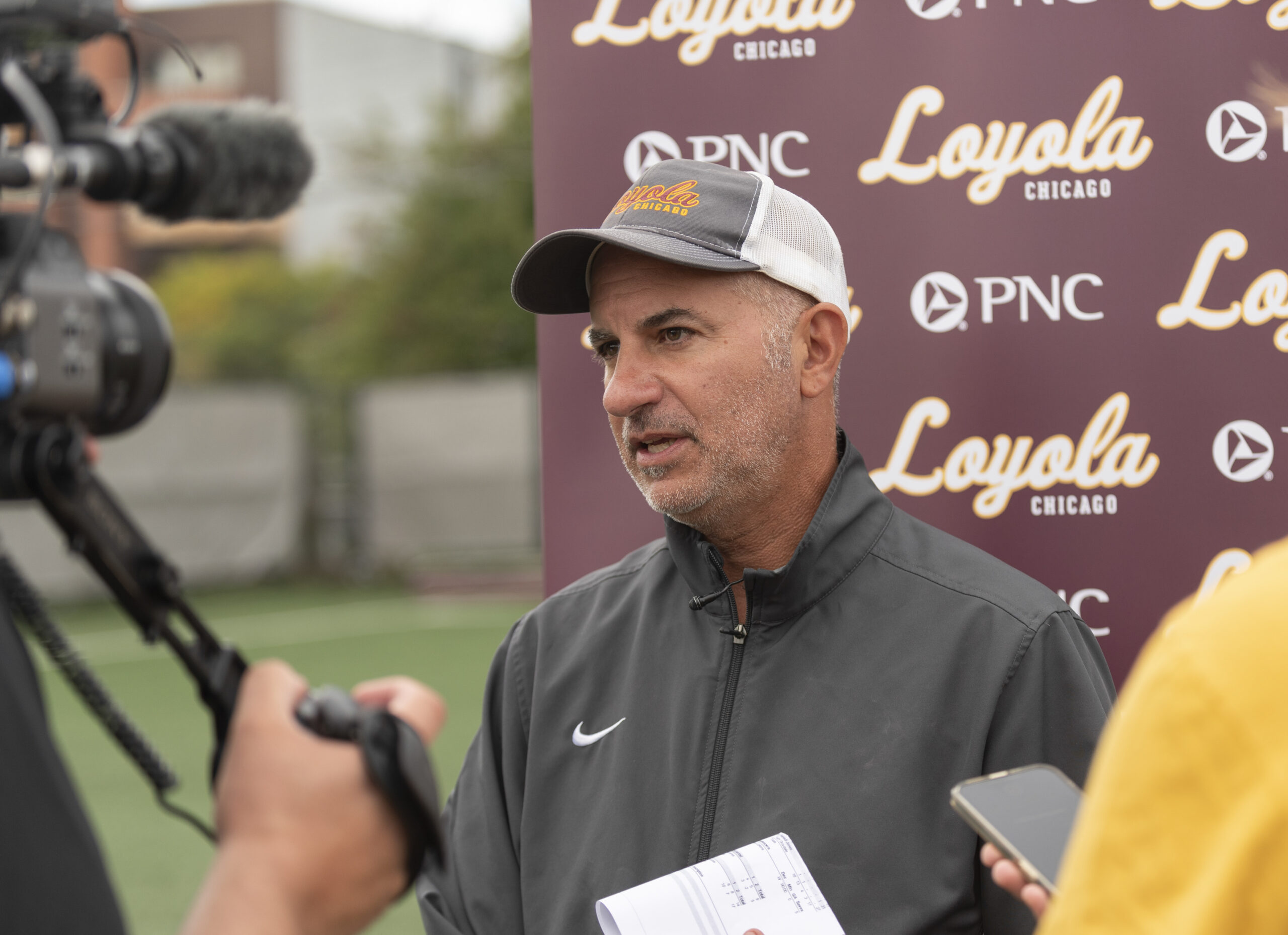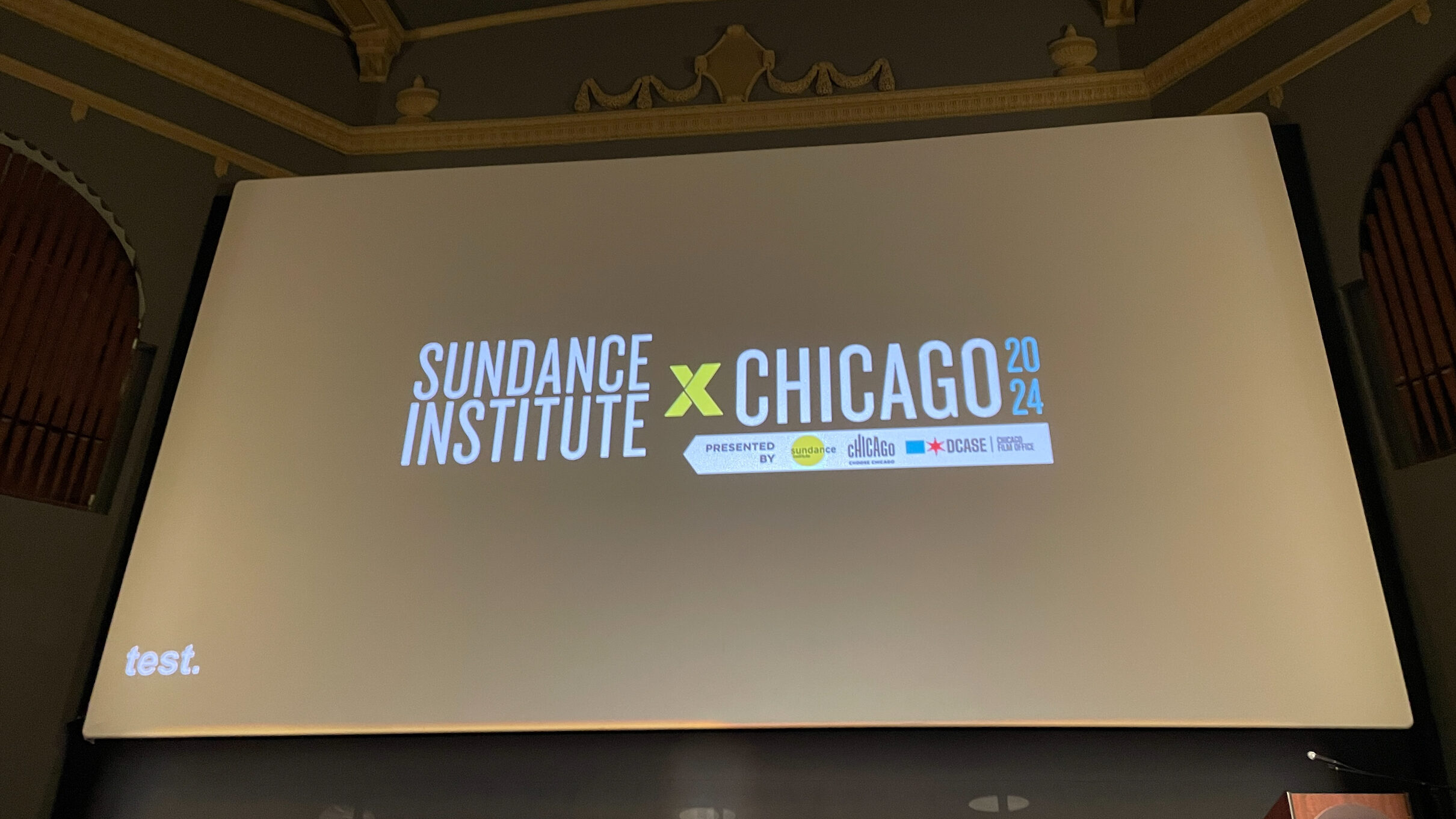Whether looking for a fluffy romance or a spine-chilling horror novel, indie bookstore after-words has them all in just a short walk from Loyola’s Water Tower Campus.
A woman-owned independent bookstore in the heart of the city keeps readers turning the page.
Nestled quietly between the skyscrapers and bustling streets of Chicago’s famous River North neighborhood sits after-words bookstore, new and used books. It is located at 23 E. Illinois St. and is just a 10-minute walk from Loyola’s Water Tower Campus. Behind brick walls and glass windows, jazz music floats through the air as customers dance between bookshelves.
Owner Beverly Dvorkin grew up in the western suburb of Lombard, Illinois, went to school for journalism at Boston University and eventually found herself opening her own new and used bookstore in 1997, following her passion for books rather than her degree.
“There’s been maybe two years out of my life where I haven’t been working in bookstores since I was 15,” Dvorkin said.
After beginning her career working for the bookstore Khrochs & Brentanos in Chicago, which closed in 1995, Dvorkin said she realized she might have enough reused books to open a store.
The building after-words moved into was built in 1896 and sat empty for four decades before she took over, according to Dvorkin. Within the brick walls and wood beams, Dvorkin spent a year and a half gutting and repairing the shop.
As a young woman in business, Dvorkin said she was used to being underestimated. Starting from zero and doing all the work herself, Dvorkin did everything from clearing out wires and fixing the lighting to make her vision come to life.
She built her business up page by page. Book by book.
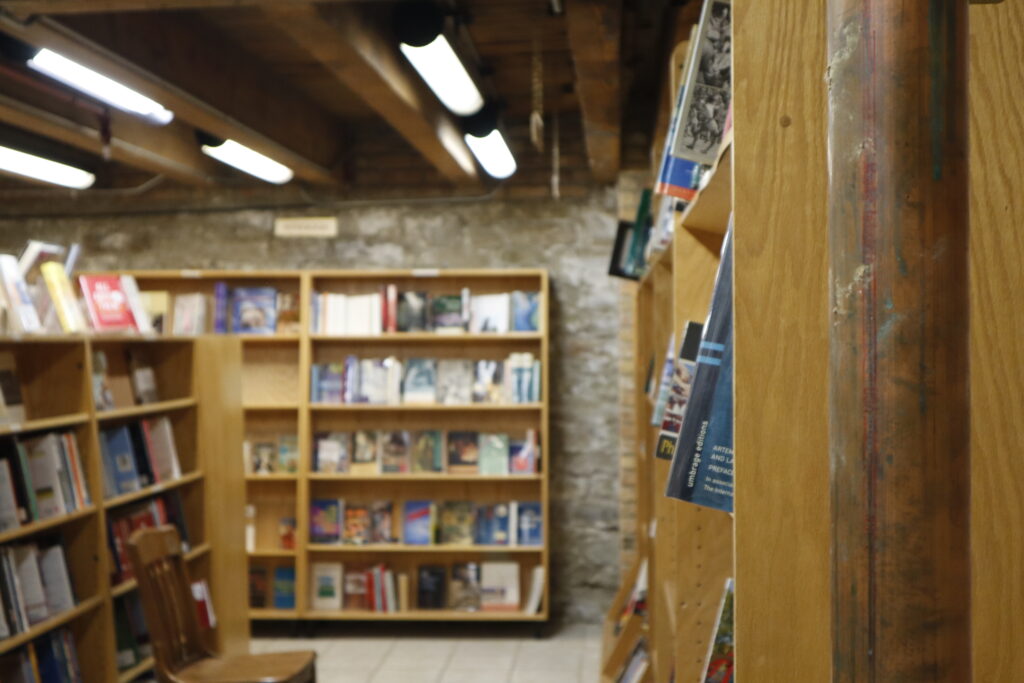
The independent store is amongst 123,632 other women-owned businesses in Chicago, according to the Center for an Urban Future.
Stepping into after-words, customers initially experience an intimate bookshop on the main level but can follow the “look down” sign into a larger portion of the bookstore. The shelves were once organized to be new on the main level and used in the basement, but Dvorkin reorganized new and used to be mixed together in 2015.
“Used book people will find used bookstores because they’re into it,” Dvorkin said. “Eventually though, largely because of the online bookselling of used books, people have gotten much more comfortable with secondhand books in the general public.”
Dvorkin said her customers are split into thirds: college students, locals and “local tourists,” which Dvorkin defines as people who live in the suburbs and visit downtown on the weekends.
Vivian Klosk, sophomore, is a regular to after-words bookstore. The communication major visits every month or two to sit in the basement to read a book or just wander through the store. She keeps postcards from her first visit to after-words on her wall. The store is one of the first places she visited when she came to Chicago for the first time after being accepted into Loyola, said the 19-year-old.
“It felt like my grandmother’s house.” said Klosk, “It’s really comfy, cozy and welcoming. The woman behind the counter always wants to talk about what I’m buying.”
While recounting her fond memories of the store, Klosk remembered taking her friends into the bookstore. The next day, indie pop singer Conan Gray posted the store on his instagram stories, Klosk said.
Klosk sneaks into after-words for quiet moments in the big city. Having a place like after-words is special when the only options are Starbucks and department stores, said Klosk.
First-year student Sophia Hartman is an after-word’s customer who said she cherishes the energy of small bookstores.
“I think that since we’re in the city, going to cute bookstores is very accessible,” Hartman, 18, said. “It’s more of an experience if you go to a bookstore versus shopping online, going to Barnes & Noble or the big book corporations.”
Ever since Hartman discovered the shop through a friend, she’s loved the atmosphere of after-words and its close proximity to Loyola’s Water Tower Campus.
Hartman enjoys the adventure of supporting small businesses and finding new things in the city.
“It romanticizes life a little bit,” the biology major said about her preference for small bookstores over big corporations.
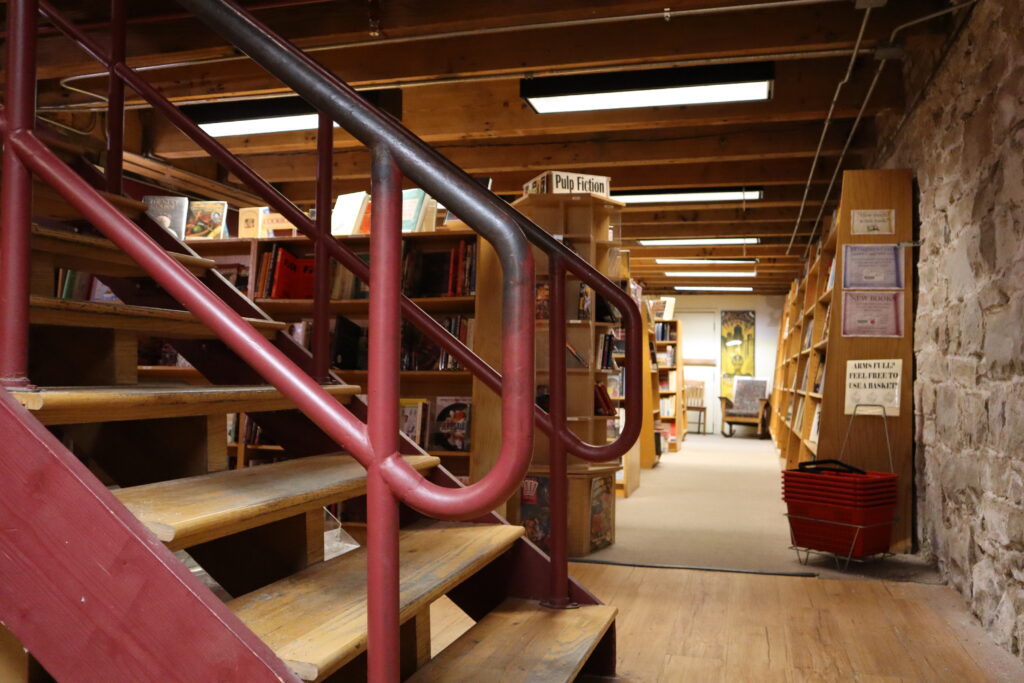
However, large corporations are not the biggest threat to independent book sellers, according to Dvorkin, but landlords, rent and gentrification.
In 1997, the average trade paperback was $14, but in 2023 it’s currently $18, a $4 increase over 26 years, according to Dvorkin. Book prices increase at a slower rate than rent, the owner said. At after-words, there has been an uptick in sales, with the exception of 2001 after 9/11 and throughout the first two years of the COVID-19 pandemic, Dvorkin said.
Starting with the pandemic in 2020, after-words has been part of the online bookselling platform bookshop.org. The site has raised over $25 million for independent bookstores in the United States, United Kingdom and Spain, according to their website.
Before the creation of this online platform, Dvorkin said she already recognized the importance of creating community with other independent bookstores.
“We’re competitors to a point, yes, but we all have different inventories, events and passions.” Dvorkin said. “As a community we can sell the idea of independent bookstores, authors and listening to diverse voices.”
after-words is located at 23 E. Illinois St. and is open Monday through Thursday noon to 8 p.m., Fridays noon to 9 p.m., Saturday 10 a.m. to 10 p.m. and Sunday from noon to 7 p.m.
This story was written by Natalie Pitluck and Xavier Barrios
Featured image courtesy of Xavier Barrios | The Phoenix




